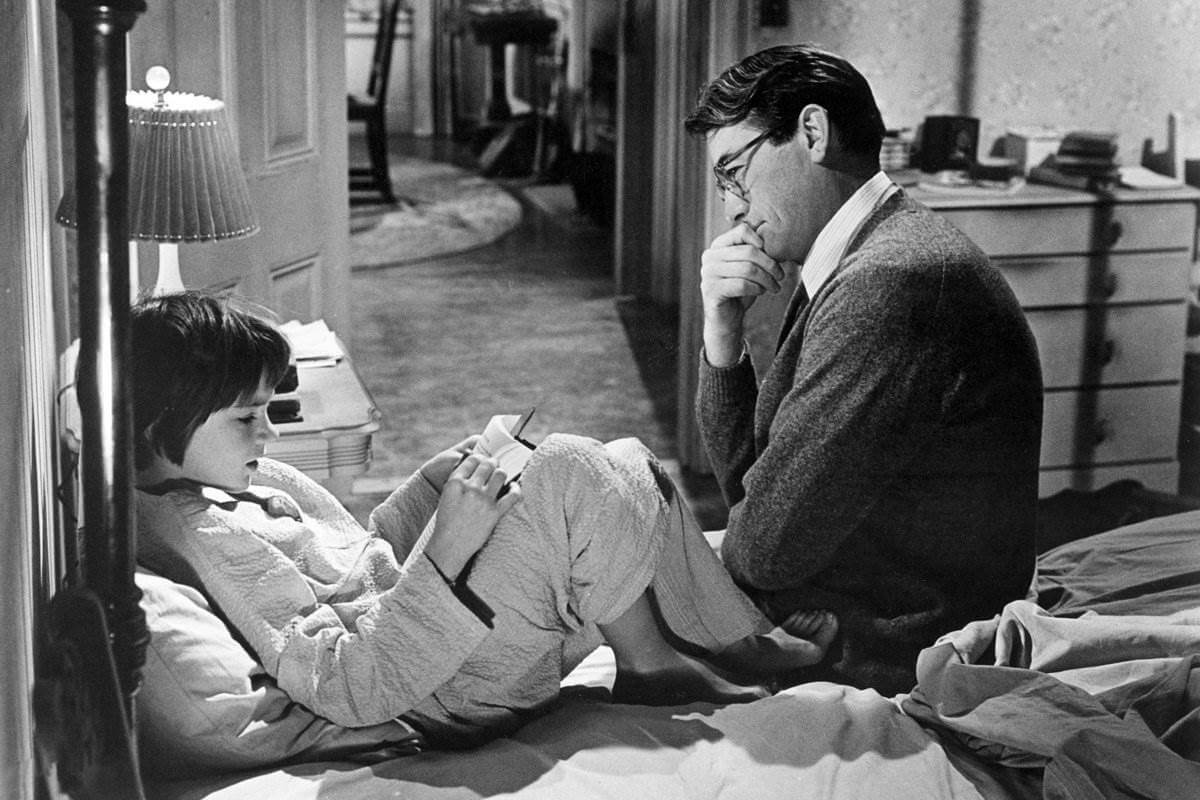Advice for Starting the School Year from Scout and Atticus Finch
On boredom, busy work, homeschooling, and courage

As the school year begins, many high school students will soon encounter To Kill a Mockingbird in their English classes. Those who have read the book will remember that a good bit of the action takes place in and around the Finch children’s school–their walks past Boo Radley’s house, the fight Scout gets into over the work Atticus does for Tom Robinson, the school play with Scout dressed as a ham.
However, many readers do not recall Scout’s thoughts on curriculum, pedagogy, and education policy, despite the fact that she has several insights about those things in her first days at school.
Readers may remember Scout’s boredom with school. Scout picks up very quickly on her school’s attachment to the factory model of schooling, and the pointlessness of it:
“The remainder of my school days were no more auspicious than the first. Indeed, they were an endless Project that slowly evolved into a Unit, in which miles of construction paper and wax crayon were expended by the State of Alabama in its well-meaning but fruitless efforts to teach me Group Dynamics . . .”
Projects without purpose, uninteresting material, and attempts at social adjustment–even in 1930s Alabama, kids saw the pointlessness of these games. The Finches’ first lesson for us as teachers, then: the kids are onto us. Our purpose should not be to entertain, necessarily, but what we do should in some ways be entertaining; students need a reason to care about the work we all do together during the year. (And lesson 1a: group projects will not help fix this problem.)
Second, even (or especially) if students feel their efforts are pointless, they can also see that there are better ways to do things. Scout, who greatly respects her father, notices this about him:
“Atticus and my uncle, who went to school at home, knew everything . . . Furthermore, I couldn’t help noticing that my father had served for years in the state legislature, elected each time without opposition, innocent of the adjustments my teachers thought essential to the development of Good Citizenship . . . as I inched sluggishly along the treadmill of the Maycomb County school system, I could not help receiving the impression that I was being cheated out of something. Out of what I knew not, yet I did not believe that twelve years of unrelieved boredom was exactly what the state had in mind for me.”
At least the first few times I read this book as a high school teacher, I glossed over this passage. The fact that Atticus was homeschooled, and Scout’s tongue-in-cheek remark about his lack of socialization are, now that I have some experience with homeschooling, hilarious.
The other bit I love about this passage is Scout’s comment about being “cheated out of something,” though she knew not what. Having come to both homeschooling and classical education in the middle of my career, after significant time working with traditional public schools, I can so strongly relate to the feeling of having missed out on…something. As school starts in our classical schools and our homeschools, it can be easy to take for granted just how beautiful, and just how precious, the content and experiences we are trying to provide our students are. So many students do not get to experience reading the Odyssey—the real, full Odyssey, not tiny textbook excerpts of the Cyclops and Scylla and Charybdis; they do not participate in any Socratic discussions; they do not write for any purpose beyond short answer standardized test prep. Those of us who are able to teach in classical schools or homeschools should count our blessings that we get to do so.
Last, here is a statement from Atticus on courage; I find it extremely relevant at the beginning of every school year when, after a summer of planning, I tend to feel like this is the year when I fix all my mistakes, prepare everything more fully, and really have a handle on what is coming over the next ten months:
“I wanted you to see what real courage is . . . It is when you know you’re licked before you begin, but you begin anyway and see it through no matter what.”
There has not been and there will not be a year when I have actually been able to or will be able to fix all of my mistakes, prepare everything as fully as I want to, or really have a handle on everything that comes at me. No matter what subject or level you teach, you’re always “licked before you begin.” But there is real joy (and pain) and holiness in doing it all anyway.










